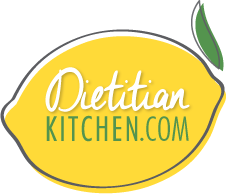Have you ever wondered whether or not the bottled water you are drinking is safe? Or if it's healthier than drinking plain ol' tap water? Or if you're wasting your money?
I have.
So I decided to open the lid on bottled water. Here's what I found:
Bottled water is regulated by the Food and Drug Administration (FDA) because since it’s packaged, it’s considered a “food product”. The Environmental Protection Agency (EPA), on the other hand, regulates tap water. There are many types of bottled water:
Unfortunately, according to the Environmental Working Group (EWG), a trusted source of health information, the FDA standards on bottled water need to be stricter. In 2011, the EWG surveyed 173 bottled water manufacturers and discovered that 18% of them did not disclose the geographical source of the water and 32% did not disclose the treatment process or purity. In the same year, the EWG came out with a Bottled Water Scorecard and noted the best choices for bottled water graded on transparency, purity, and notation of the geographical source. The brands that scored highest were Gerber Pure Purified Water, Nestle Pure Life, and Penta Ultra Purified Water. EWG recommends, hands down, to drink filtered tap water instead.
Believe it or not, over 25% of bottled water is actually tap water sourced from another state. You've got it, the five dollar 16.9 oz. bottled water you purchased at the movie theater last weekend could have come from the faucet of your cousin’s home in Illinois. Well, maybe that's stretching it. But you get the point.
Not only is the cost of bottled water alarming (as a recent consumer reports article noted that we are spending about $346 dollars per person per year) but so is the fact that these bottles are clogging our landfills. According to recent statistics, Americans purchased about 167 bottles of water each last year and only recycled 38. That’s a lot of waste.
I did the math and if you buy a pitcher filter and enough filters to replace every 3 months for a year, you'd be spending about $62 for the entire family. That's a lot less than $346 per person.
Aside from the cost, another concern with bottled water is its Bis-phenol A (BPA) content. BPA is a component of polycarbonate which is used to make plastics (as in plastic water bottles), pipes, the lining of canned goods, and store receipts. Unfortunately, BPA may pose a health risk.
According to the National Institutes of Health (NIH) The detection of adverse health effects in a number of laboratory animal models upon exposure to environmentally relevant doses of BPA that correspond to those observed in humans, strongly supports the idea that the endocrine disrupting activities of BPA contribute to adverse effects on human health (reviewed in Richter et al., 2007). Here is another article pointing out the harmful effects of BPAs in our environment.(Science Daily Article) Interestingly enough, the European Union and Canada have banned BPAs in baby bottles. It may be only a matter of time before BPA regulations hit closer to home.
If you do buy bottled water, I advise to never leave it in your hot car over the summertime as the high temperatures can leach chemicals from the bottle into the water, causing harmful effects. A scary thought, but if BPA's can seep into bottled water simply from heat exposure, think about those millions of cases that are transported on trucks and stored in warehouses for hours, days, months...
My suggestion? Drink filtered tap water in refill-able glass water bottles and you will be doing your health, your wallet, and the environment a favor. When you do drink bottled water, avoid the recycling #'s 3 and 7 as these may contain BPA. Re-fill it with tap and make sure you don't leave it out in the heat.


